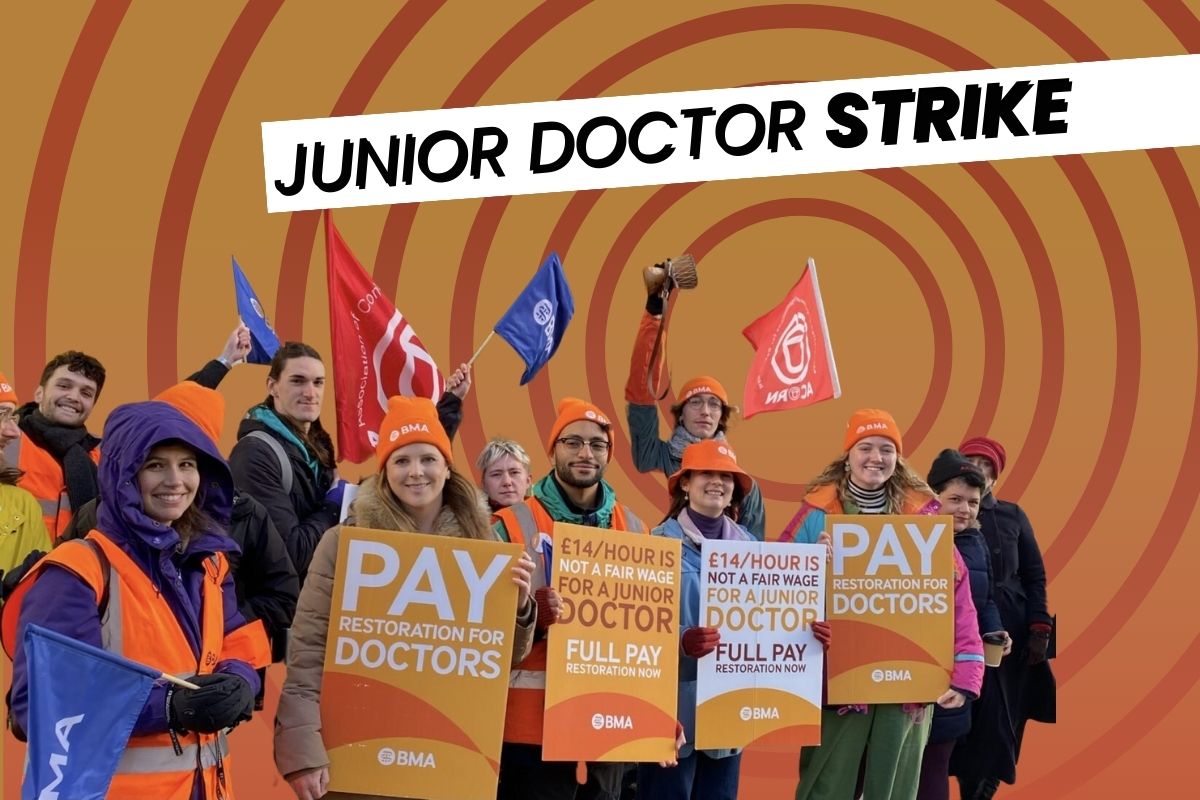

In recent weeks, the UK healthcare system has been rocked by a series of strikes from junior doctors. These young doctors are the backbone of the National Health Service (NHS). They are calling for fair pay. They also want improved working conditions and a sustainable future for the NHS. Let’s dive into the Junior Doctor Strike saga, a powerful narrative of the fight for fair compensation, driving toward a robust and sustainable NHS.
Table of Contents
Junior doctors in the UK face several challenges. They are often overworked and underpaid. Many work long hours for relatively low salaries. They also face significant pressures to meet performance targets. This can lead to burnout and stress.
In addition, the NHS is facing a funding crisis. This has led to a shortage of resources and staff. It makes it even more difficult for junior doctors to do their jobs effectively.
The British Medical Association (BMA) represents junior doctors. It is calling for a 35% pay rise for its members. They also want the government to take action to improve working conditions. For example, by reducing the number of hours junior doctors have to work.
The strikes have had a significant impact on the NHS. Many hospitals have been forced to cancel routine operations and appointments. This has caused disruption and distress for patients and their families.
The government has said that it is committed to working with the BMA to find a resolution to the dispute. However, they have also said that they cannot afford to meet the BMA’s demands in full.
It is unclear how long the strike will last. The BMA has said that they are prepared to continue striking until their demands are met. However, the government has said that they will not be bullied into giving in to the BMA’s demands.
The junior doctor strike has caused significant disruption to patient care. Many non-urgent operations and appointments have been cancelled. Patients are facing longer waiting times for treatment. This is causing anxiety and distress for many patients. Particularly, those who are already worried about their health.
The strike is also having a major impact on the NHS. The NHS is already under strain, and the strike is making it even more difficult for hospitals to cope. This is putting additional pressure on NHS staff. They are already working long hours under difficult conditions.
Public opinion polls have shown widespread support for the junior doctor strike. Many people understand the reasons why the doctors are striking and believe that they deserve a fair deal.
The government and the BMA must find a resolution to this dispute as soon as possible. The strike is causing significant disruption to patient care. It’s putting additional pressure on the NHS. It is time for both sides to come together and find a way to move forward.
I hope this article has given you a better understanding of the junior doctor strike. It is a complex issue with no easy answers. However, it is important to remember that the doctors are striking for a reason. They are fighting for fair pay. They want improved working conditions and a sustainable future for the NHS. We all have a stake in the outcome of this dispute. We must continue to follow the developments closely.
In addition to the information above, here are some other things to keep in mind about the junior doctor strike:
The recent junior doctor strike in the UK, fueled by concerns about fair pay and improved working conditions, has significantly disrupted the National Health Service (NHS). Facing challenges of overwork, underpayment, and a strained healthcare system, the doctors, represented by the British Medical Association (BMA), demand a 35% pay rise and better working conditions. The strikes have led to the cancellation of routine operations, impacting patient care and causing distress.
While public support is evident, the government asserts its commitment to resolving the dispute but maintains financial constraints. The future of the strike remains uncertain, emphasizing the urgent need for a resolution to alleviate strain on the NHS and minimize disruption to patient care.
Sign up to receive our email, delivering the latest stories straight to your inbox.
